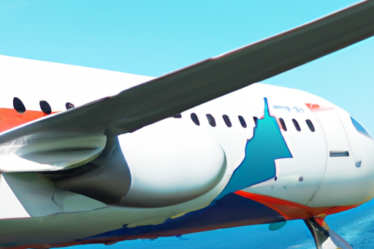
Benefits and Compensation: Analyzing the Proposed Contract for American Airlines Pilots
The American Airlines pilots are currently voting on a new contract that could significantly impact their benefits and compensation. This proposed contract has been a topic of discussion among pilots and industry experts, as it aims to address some long-standing issues and improve the overall working conditions for pilots.
One of the key aspects of the proposed contract is the increase in pay for pilots. Under the new contract, pilots would receive a substantial raise, which is seen as a positive development by many. This increase in pay is not only a reflection of the hard work and dedication of pilots but also an acknowledgment of the crucial role they play in the success of the airline.
In addition to the pay raise, the proposed contract also includes improvements in other areas of compensation. Pilots would receive better retirement benefits, including an increase in the company’s contribution to their retirement plans. This is an important consideration for pilots who have dedicated their careers to the airline and are looking forward to a secure and comfortable retirement.
Another significant change in the proposed contract is the improvement in work-life balance for pilots. The contract includes provisions for more predictable schedules and increased rest periods between flights. This is a crucial aspect as it directly impacts the safety and well-being of pilots. By ensuring that pilots have adequate rest and time off, the airline is taking a proactive approach towards reducing fatigue-related incidents and promoting a healthier work environment.
The proposed contract also addresses some concerns related to job security. It includes provisions that protect pilots from furloughs and provide opportunities for career progression within the airline. This is particularly important in the current economic climate, where job security is a top priority for many employees. By offering stability and growth opportunities, the proposed contract aims to attract and retain talented pilots, ensuring the long-term success of the airline.
While the proposed contract offers several benefits and improvements, it is not without its critics. Some pilots argue that the pay raise is not enough to compensate for the demanding nature of their job. They believe that the increase should be higher, considering the level of responsibility and skill required to operate an aircraft. Additionally, there are concerns about the potential impact of the contract on the overall financial health of the airline. Critics argue that the increased costs associated with the proposed contract could negatively affect the company’s profitability and ultimately lead to job cuts or reduced benefits in the future.
As the voting process continues, it is important for pilots to carefully consider the proposed contract and its potential implications. They should weigh the benefits and improvements against any concerns or criticisms raised. Ultimately, the decision to accept or reject the contract rests with the pilots, and their vote will shape the future of their benefits and compensation.
In conclusion, the proposed contract for American Airlines pilots offers several benefits and improvements in terms of pay, retirement benefits, work-life balance, and job security. While it has received positive feedback from many pilots, there are also concerns and criticisms that need to be taken into account. The voting process will determine the fate of the contract, and it is crucial for pilots to make an informed decision that aligns with their individual needs and priorities.
Implications for Labor Relations: Examining the Vote on the New Contract for American Airlines Pilots

The American Airlines pilots are currently in the process of voting on a new contract that could have significant implications for labor relations within the company. This vote comes after months of negotiations between the pilots’ union and the airline’s management. The outcome of this vote will not only determine the terms of the pilots’ employment but also set a precedent for future negotiations between the union and the company.
The new contract being voted on includes several key provisions that have been the subject of intense debate. One of the most contentious issues is the proposed changes to the pilots’ pay structure. Under the current contract, pilots are paid based on the number of hours they fly. However, the new contract would introduce a new pay scale that takes into account factors such as seniority and aircraft type. This change has sparked concerns among some pilots who fear that it could lead to a decrease in their overall pay.
Another important provision in the new contract is the proposed changes to the pilots’ retirement benefits. Currently, pilots are eligible for a defined benefit pension plan, which guarantees them a certain level of income in retirement. However, the new contract would replace this pension plan with a defined contribution plan, where pilots would contribute a portion of their salary to a retirement account. This change has raised concerns among some pilots who worry that they may not be able to save enough for retirement under the new plan.
In addition to these specific provisions, the new contract also includes changes to other aspects of the pilots’ working conditions. For example, it proposes changes to the scheduling system, which some pilots believe could lead to longer work hours and less time off. It also includes changes to the grievance process, which some pilots fear could make it more difficult for them to address workplace issues.
The outcome of this vote is being closely watched by both the pilots’ union and the airline’s management. If the contract is approved, it could signal a shift in the balance of power between labor and management within the company. It could also set a precedent for future negotiations between the union and the company, as other employee groups may look to the pilots’ contract as a benchmark for their own negotiations.
On the other hand, if the contract is rejected, it could lead to further tensions between the pilots’ union and the airline’s management. It could also result in a prolonged period of uncertainty for the pilots, as negotiations would likely continue until a new contract is reached. This could potentially impact the airline’s operations, as pilots may become more disgruntled and less willing to go above and beyond in their work.
In conclusion, the vote on the new contract for American Airlines pilots has significant implications for labor relations within the company. The outcome of this vote will not only determine the terms of the pilots’ employment but also set a precedent for future negotiations. The proposed changes to the pilots’ pay structure, retirement benefits, and working conditions have sparked intense debate and raised concerns among some pilots. The outcome of this vote is being closely watched by both the pilots’ union and the airline’s management, as it could signal a shift in the balance of power and have lasting effects on labor relations within the company.
The Future of American Airlines: How the Pilots’ Vote on the New Contract Could Shape the Airline’s Direction
American Airlines pilots are currently in the midst of voting on a new contract that could have a significant impact on the future direction of the airline. This vote comes at a crucial time for American Airlines, as the company looks to navigate the challenges posed by the COVID-19 pandemic and position itself for success in the post-pandemic world.
The new contract being voted on by the pilots covers a wide range of issues, including pay, benefits, and working conditions. These are all important factors that can greatly influence the morale and job satisfaction of the pilots, which in turn can have a direct impact on the overall performance of the airline.
One of the key issues being addressed in the new contract is pilot pay. Pilots are seeking fair compensation for their work, especially considering the demanding nature of their job and the level of responsibility they hold. A competitive salary is not only important for attracting and retaining top talent, but it also serves as a motivating factor for pilots to perform at their best.
In addition to pay, the new contract also addresses benefits for pilots. This includes healthcare coverage, retirement plans, and other perks that can greatly enhance the quality of life for pilots and their families. By offering attractive benefits, American Airlines can demonstrate its commitment to the well-being of its pilots and their families, which can go a long way in fostering loyalty and dedication among its pilot workforce.
Working conditions are another important aspect of the new contract. Pilots often work long hours and face demanding schedules, which can take a toll on their physical and mental well-being. By addressing issues such as scheduling, rest periods, and workload, the new contract can help create a more favorable work environment for pilots, allowing them to perform their duties more effectively and safely.
The outcome of the pilots’ vote on the new contract will have far-reaching implications for American Airlines. If the contract is approved, it will provide stability and certainty for the airline, allowing it to move forward with confidence in its pilot workforce. This, in turn, can have a positive impact on the overall performance and reputation of the airline, as well as its ability to attract and retain customers.
On the other hand, if the contract is rejected, it could lead to uncertainty and potential disruptions for American Airlines. A rejection of the contract could result in labor disputes and possible strikes, which can have a detrimental effect on the airline’s operations and reputation. It could also create a negative perception among customers, who may choose to fly with other airlines that have more stable labor relations.
In conclusion, the vote on the new contract for American Airlines pilots is a critical moment for the airline. The outcome of this vote will shape the future direction of the airline, influencing factors such as pilot pay, benefits, and working conditions. It is important for American Airlines to listen to the concerns and needs of its pilots and work towards a mutually beneficial agreement. By doing so, the airline can position itself for success in the post-pandemic world and ensure a bright future for both its pilots and its customers.


